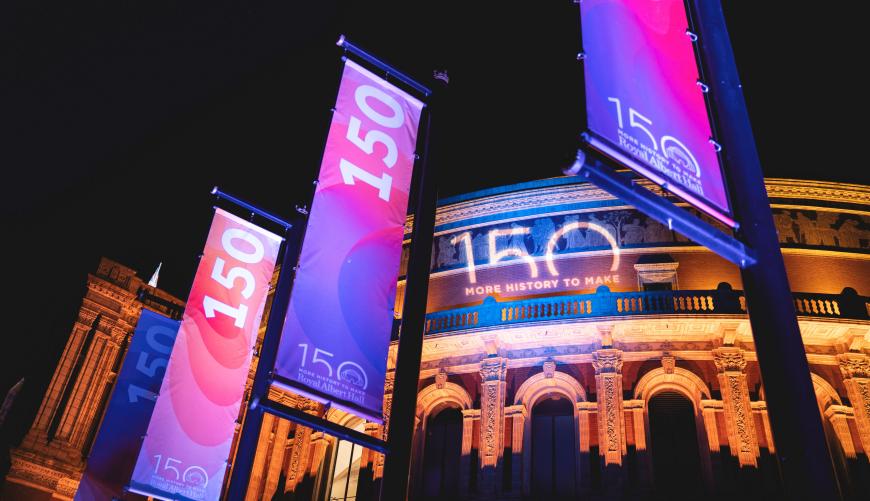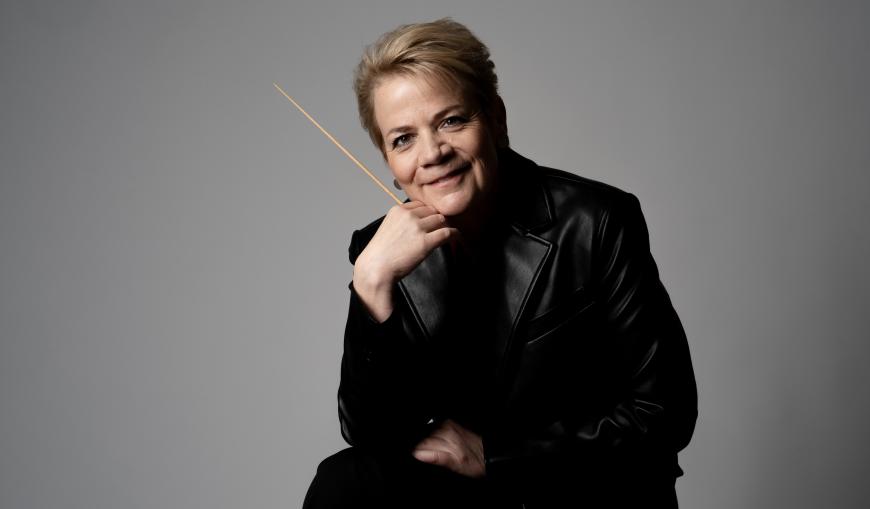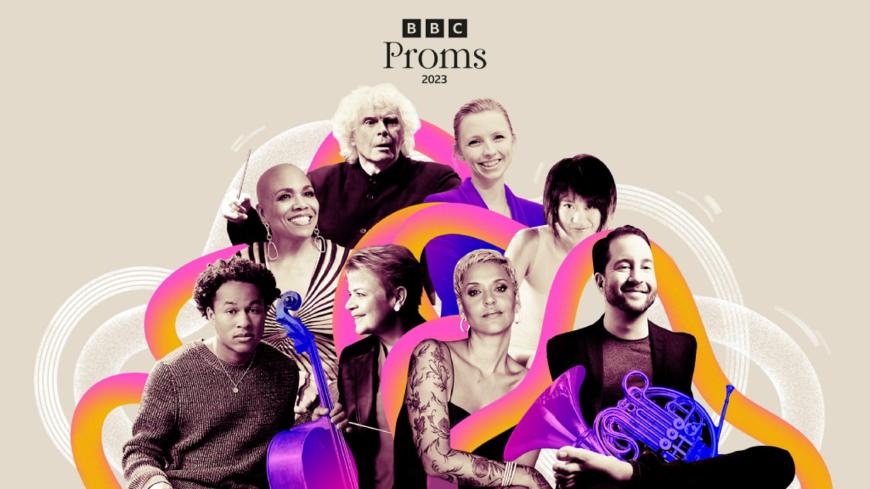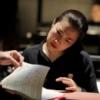
The BBC Proms is both historical and precedent-breaking. At the forefront of dealing with the deplorable, centuries-long gender inequality in classical music, the 2023 edition of the festival is a step on the road to a hoped-for “year of the woman.”
The opening and closing nights will be led by Dalia Stasevska and Marin Alsop, respectively, two of the 10 women conducting concerts this year. Alsop will lead the Last Night of the Proms for the third time — just a decade after she became the first woman to lead the Last Night concert. She is the newly named principal guest conductor of London’s Philharmonia Orchestra and will also be the first American to conduct three Last Nights in the festival’s history.
Eleven of this year’s 21 premieres are by female composers, including the Ukrainian Bohdana Frolyak and Master of the King’s Music Judith Weir. A third of the festival’s 84 concerts include works by women. (For comparison, San Francisco has long been trying to achieve gender equality in music.)
“We’re moving in the right direction towards equitable representation,” says Proms Director David Pickard, “but it’s a slow process.”

But first, back to Proms history. The summer festival is the greatest, oldest free livestreaming of classical music in the world, with two months of daily broadcasts from London’s 5,000-seat Royal Albert Hall (itself more than 150 years old).
This is the concerts’ 129th season, broadcast for the 96th year, but the series’ history goes back even further. It first originated as the Promenades in 1838, and eventually Arthur Sullivan (of Gilbert & Sullivan fame) would serve as one of its directors.
“Proms” is short for promenade concerts, referring to outdoor concerts in London’s pleasure gardens, where the audience was free to stroll around while the orchestra was playing.
In 2022, after two miserable COVID years, a new issue interfered with indoor concerts as Europe was suffering from a deadly, unprecedented heat wave — is the Albert Hall air-conditioned? This being England, there was a complex, history-laden answer to that. Weather problems may intrude this year as well.
As for listening live to the Proms on the West Coast, most of the concerts at Royal Albert Hall begin at 7 p.m. in London, which is a tolerable 11 a.m. here, certainly better than this week’s coronation, which begins at 2 a.m. PT. Livestreaming is at BBC 3, after which recordings remain available for a month.

Women conductors for the season, besides Alsop and Stasevska, are Anja Bihlmaier, Keri-Lynn Wilson, Elim Chan, Gemma New, and Sarah Hicks.
Some selections from the Proms season (at 11 or 11:30 a.m. PT unless otherwise noted):
July 14 — Prom 1: First Night of the Proms — Dalia Stasevska conducts the BBC Symphony Orchestra in Jean Sibelius’s Finlandia and Snöfrid, Bohdana Frolyak’s Let There Be Light (BBC commission and world premiere), Edvard Grieg’s Piano Concerto in A Minor (with soloist Paul Lewis), and Benjamin Britten’s The Young Person’s Guide to the Orchestra.
July 17 — Prom 5: Bruch’s First Violin Concerto — Anja Bihlmaier conducts the BBC Philharmonic in Samuel Coleridge-Taylor’s Ballade in A Minor, Max Bruch’s Violin Concerto No. 1 in G Minor (with soloist Bomsori), Brahms’s Hungarian Dances Nos. 1, 3, and 10, and Béla Bartók’s Concerto for Orchestra.
July 26 — Prom 16: The Hallé performs Shostakovich’s Fifth Symphony — Mark Elder conducts the Hallé and the BBC Symphony Chorus in Sergei Rachmaninoff’s The Bells (with soprano Mané Galoyan, tenor Dmytro Popov, and baritone Rodion Pogossov) and Dmitri Shostakovich’s Symphony No. 5 in D Minor.
July 29 — Prom 19: Mendelssohn’s Elijah — Conductor Maxim Emelyanychev and the Scottish Chamber Orchestra present Felix Mendelssohn’s oratorio, with baritone Roderick Williams and soprano Carolyn Sampson.

July 30 — Prom 20: Daniil Trifonov plays Mason Bates — Gustavo Gimeno conducts the BBC Symphony Orchestra in Bernard Herrmann’s Vertigo Suite, Sergei Prokofiev’s Third Symphony, and Mason Bates’s Piano Concerto (U.K. Premiere).
Aug. 7 — Prom 31: Poulenc’s Dialogues of the Carmelites — Robin Ticciati conducts the opera in a concert staging from the Glyndebourne Festival, with Sally Matthews (Blanche de la Force), Katarina Dalayman (Old Prioress), Golda Schultz (New Prioress), Karen Cargill (Mother Marie), Florie Valiquette (Sister Constance), and Fiona Kimm (Mother Jeanne).
Aug. 17 — Prom 43: György Kurtág’s Endgame — Kurtág’s adaption of Samuel Beckett’s absurdist play has its U.K. premiere from the BBC Scottish Symphony Orchestra, led by Chief Conductor Ryan Wigglesworth.
Aug. 22 — Prom 48: Jules Buckley Orchestra
Aug. 22 — Prom 49: Schumann’s Das Paradies und die Peri — Simon Rattle and the London Symphony Orchestra and Chorus present the oratorio in its first complete performance at the Proms, with singers Lucy Crowe, Jeanine De Bique, Magdalena Kožená, Andrew Staples, and Linard Vrielink. (James Conlon and the SF Symphony gave the San Francisco premiere years ago.)
Sept. 3 — Prom 64: Berlioz’s The Trojans (starts at 8 a.m. PT) — John Eliot Gardiner conducts his Orchestre Révolutionnaire et Romantique and Monteverdi Choir in a concert performance of the opera, with Alice Coote (Cassandra), Michael Spyres (Aeneas), and Paula Murrihy (Dido).




